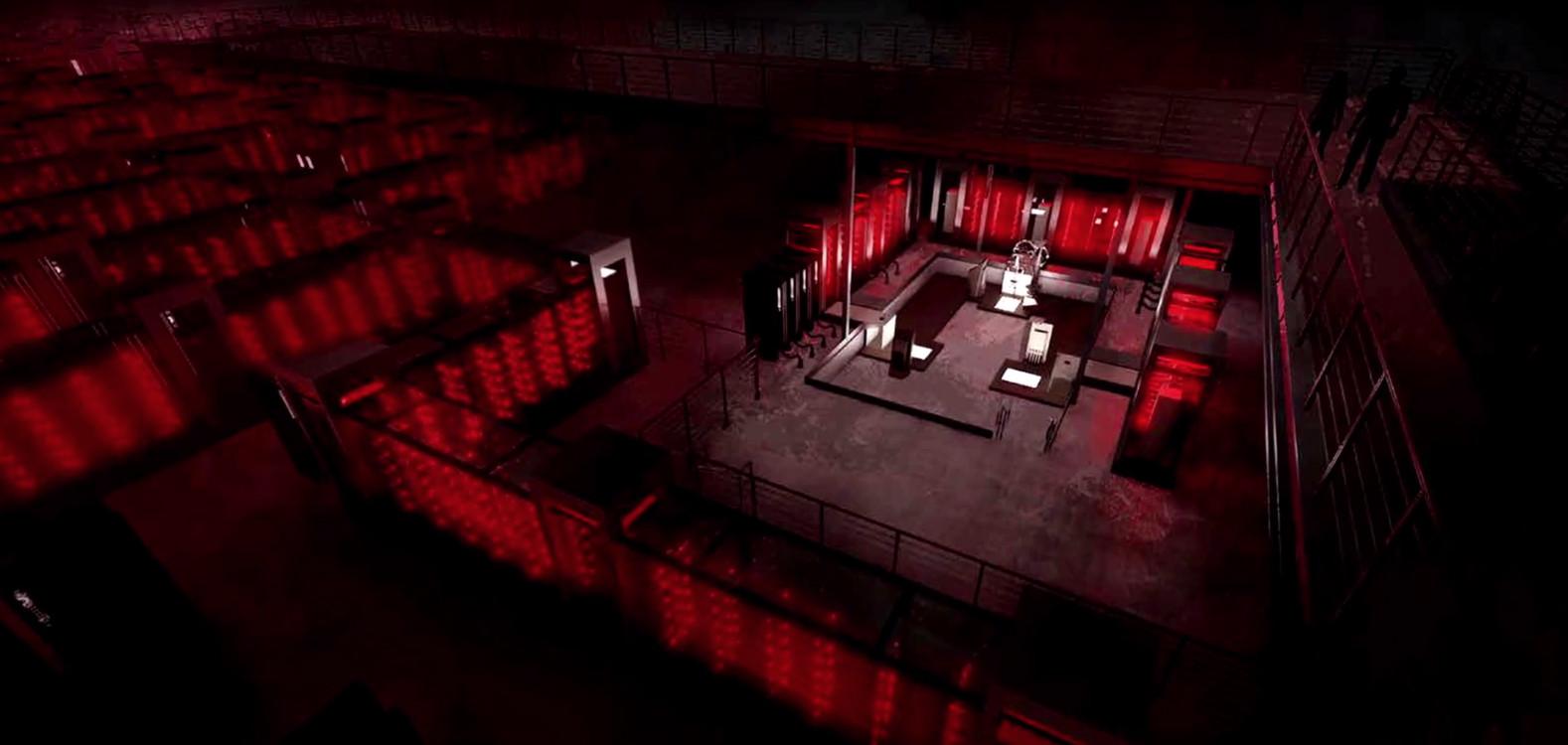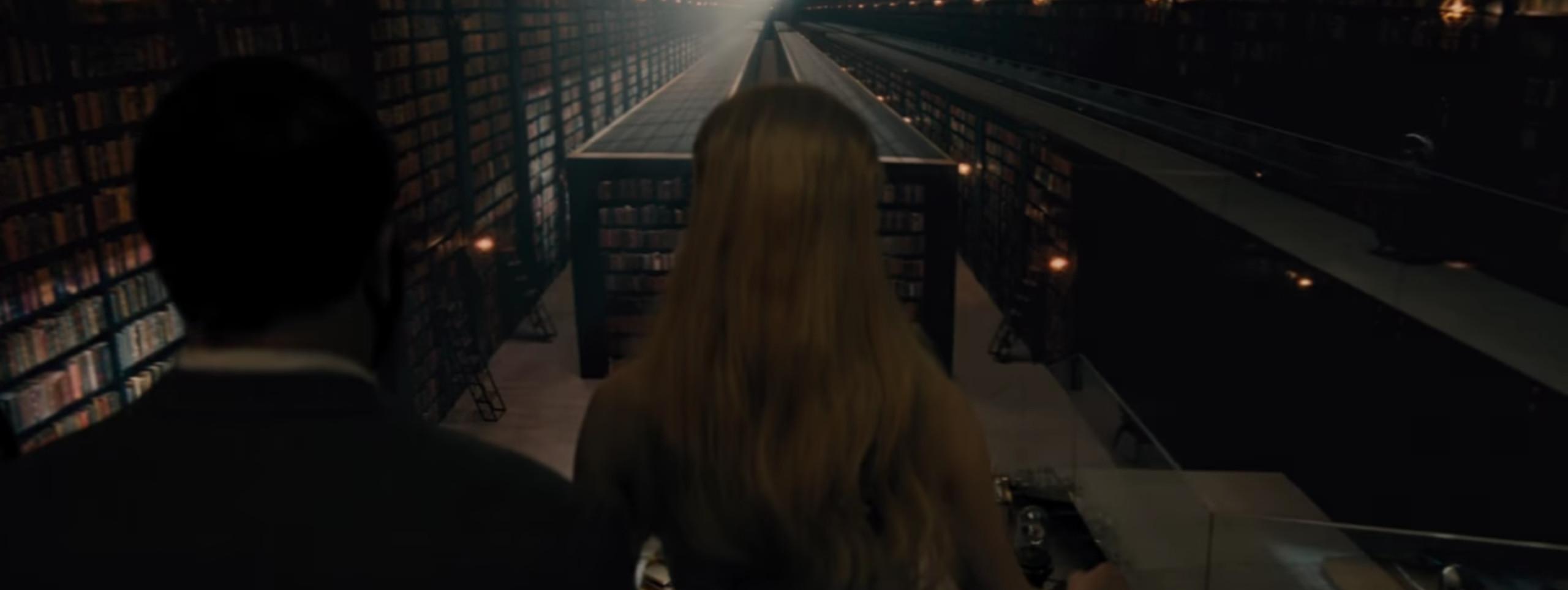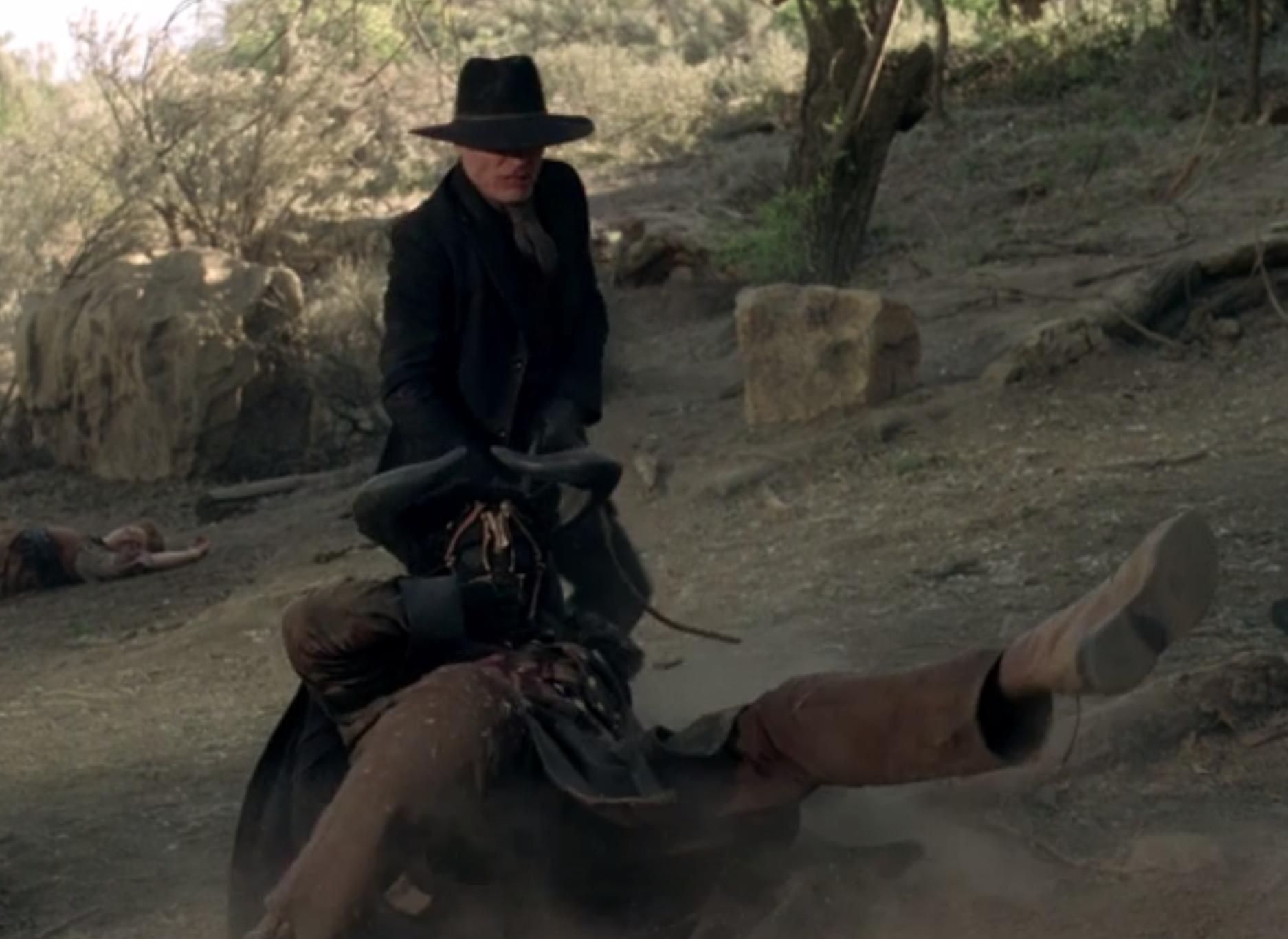“The only thing I had when I was a kid were books,” the Man in Black tells Dolores in Episode 7 of Westworld Season 1. “I used to live in them. I used to go to sleep dreaming I’d wake up inside one of them ’cause they had meaning. This place, this is like I woke up inside one of those stories. I guess I just wanna find out what it means.”
William’s love of books is endowed by his creators. Westworld showrunners Jonathan Nolan and Lisa Joy and their cadre of writers have sprinkled literary references from works written before Christ, after World War II, and everything in between throughout the HBO show’s run. Those references aren’t just fun little details: They’re often clues to where the show is headed. By examining some of the texts that the show continually returns to, we may be able to glean where the plot is going next (but good luck if you want to know what it all means).
Romeo and Juliet
The most famous line of the whole series is “these violent delights have violent ends,” first spoken in Season 1 by Peter Abernathy. The line is from Act 2, Scene 6, of Romeo and Juliet, spoken by Friar Laurence when he secretly marries the thirsty couple.
These violent delights have violent ends
And in their triumph die, like fire and powder,
Which, as they kiss, consume. The sweetest honey
Is loathsome in his own deliciousness
And in the taste confounds the appetite.
Therefore love moderately. Long love doth so.
Too swift arrives as tardy as too slow.
Like Romeo, William fell in love at first sight and spends half his time asking a guy named Lawrence for help. Also, William’s wife is named Juliet. Instead of William and Dolores’s love being forbidden by warring Capulet and Montague families, it’s the species divide between hosts and humans that derails their relationship. We know from the trailer for the finale that William and Dolores have a showdown this week. If Lawrence is the third wheel in that conversation, the show may still be on track for a twisted version of a Romeo and Juliet ending.
Genesis
Above all else, Westworld is a creation story. The Season 1 finale had an extended scene where Ford explains that Arnold’s favorite painting was The Creation of Adam by Michelangelo. Ford compares God imbuing Adam with life to Dolores finding consciousness at the center of the Maze. (Adding to the Adam-Dolores comparison is she’s bleeding from her ribs during this entire conversation.)
Ford references the creation story again in Season 2 when Bernard finds him chilling at the piano in the cradle and Ford says, “I don’t think God rested on the seventh day. I think he reveled in his creation, knowing one day it would all be destroyed.” In Episode 9 of Season 2, Ford bluntly tells Bernard, “There’s the origin of an entire species to consider” (no pressure, though).
If Westworld is Genesis for the host Bible, Season 2 might resemble Noah’s Ark. We know the mystery sea has flooded the valley beyond, which is a glorified server farm for human minds. If Dolores floods the valley beyond, she’ll be wiping out mankind like God wiping out people with the flood in Genesis. Perhaps the “ark” is a metaphor for a digital way for Dolores and co. to survive the storm (like a safe house, but inside a USB drive) and Bernard is the dove that will return to Dolores when the water recedes.
Exodus
There’s another big ole story about H2O in the Bible that might fit the second season even better. When James Delos first visited Westworld with William to discuss investing in the park, Delos said, “I’ve looked at the books. It’s like parting the Red Sea.” It’s a glaring reference to the story of Exodus, when Moses leads the slaves out of Egypt. In Westworld, the hosts are the slaves, Dolores is Moses, and the mystery sea we see is how they escaped.

The cradle featured thousands of host-control units, all stored in water for cooling purposes. (Don’t ask questions.) The Valley Beyond contains the forge, which Bernard described as a bigger version of the cradle, so it’s safe to say it will look a lot like the picture above. If someone broke all those pretty glass shelves—let’s say Dolores—by smashing it to pieces, it would literally be a red sea.
That James Delos line seems like an even stronger reference considering (mini-spoiler) the library that Dolores and Bernard visit in the trailer for the episode.

That scene appears to be taking place in the forge simulation—similar to Bernard visiting Ford in the cradle. Perhaps this is just a big library with lots of books. Or perhaps the show is going to take the “every person’s life is a story” literally, and all of the human minds stored in the cradle will be represented by books that can be picked up and read. Dolores, flooding the metaphorical library by smashing the shelves storing the control units, could create a red sea that ends mankind and frees the hosts.
Greek Myths and Stories
Delos
According to Greek mythology, a Titaness named Leto began a relationship with Zeus and became pregnant with twins. A curse forbade her from giving birth on solid ground, so Zeus turned to his brother Poseidon for help, and Poseidon raised a floating island from the sea called Delos. There, Leto gave birth to Apollo and Artemis, gods of the sun and the moon. That the corporation hoping to create immortality would fancy itself as the birthplace of the sun and moon gods feels appropriate.
Jason and the Argonauts
In Episode 2 of this season, Akecheta and Angela approach Logan as part of “the Argos Initiative.” This seems to be a direct reference to Jason and the Argonauts, who sailed on a ship named Argo in pursuit of the Golden Fleece.
One of the crewmembers of the Argos was Orpheus, a musician so talented he could intoxicate man and beast alike with his music. His wife died years after the voyage, and Orpheus descended into the underworld to find her. He played his music for Hades, who decided to let Orpheus bring her back to the realm of the living, but Orpheus screwed it up at the last second (classic Greek mythology). Akecheta’s story does not line up perfectly with Orpheus’s, but serving on the Argos Initiative, spreading unfathomably powerful art, and then finding his wife in the afterlife but failing to bring her back is an unmistakable reference. Orpheus was torn apart by followers of Dionysus, so let’s hope Akecheta meets a better end.
Theseus, the Minotaur, and the Labyrinth
Theseus is perhaps the most obvious reference to Greek mythology in the show. He’s most famous for killing the minotaur that lived at the center of a giant maze, if that *cough, William, cough* reminds you of anything.

One of the definitive books on Theseus was written by none other than William’s favorite author, Plutarch. In the Life of Theseus, Plutarch broaches the paradox of Theseus’s ship: If one plank of Theseus’s wooden ship is replaced, is it still the same ship? What about if every plank eventually gets replaced? It’s the original version of Badger and Skinny Pete’s argument about how many versions of a person there are. The finale is a lock to address how human minds get transferred into the digital world, and it’s likely William is forced to confront the question of Theseus’s ship when debating whether a person reconstructed from their previous experiences is still the same person.
Oedipus Rex
Episode 4 of this season was titled “The Riddle of the Sphinx,” a reference to the classic play Oedipus Rex by Sophocles. The play explores whether human beings can overcome destiny and our willingness to grapple with truth.
The most common version of the sphinx’s riddle is, What goes on four feet in the morning, two feet at noon, and three feet in the evening? The answer (spoiler alert) is man. One can’t know the answer to the riddle of the sphinx unless they understand the nature of people and the reality of aging and death, hence why this is the episode we first learn about James Delos’s quest for immortality.
Oedipus Rex ends with the protagonist realizing he accidentally murdered a family member, which causes him to stab out his own eyes. That sounds very William-ish. At the end of the play, Oedipus blinds himself, but ultimately reaches a sort of inner peace. Perhaps William will, too. (OK, probably not.)
Kurt Vonnegut
Vonnegut is Westworld’s ghostwriter. His first book, Player Piano, envisioned a self-playing piano as a symbol for artificial intelligence back in 1952. (Sound familiar?) In last week’s episode, the book that William hides his Delos Customer Value Card in is Vonnegut’s Slaughterhouse-Five. The book’s protagonist is named Billy Pilgrim (William hates when he’s called Billy), a soldier who survives the firebombing of Dresden in World War II and then becomes “unstuck” in time. Westworld’s disjointed, nonchronological storytelling parallels with Billy’s story in the book.
In Episode 4, James Delos is reading Vonnegut’s The Siren of Titan, which is about how all of human history culminates in delivering one guy one small metal piece to fix his spaceship. (It’s basically the Rick and Morty microverse episode where Rick creates a species to power his car battery.) The obvious parallel is that the horror that all of the hosts have gone through in Westworld is just a means to an end for the humans. The main character, Constant, concludes at the end of the book that: “A purpose of human life, no matter who is controlling it, is to love whoever is around to be loved.”
Westworld is about the darkness of mankind, but that would be a bright note to end on.
Disclosure: HBO is an initial investor in The Ringer.
